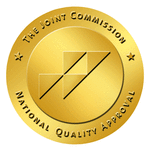If you suspect that your spouse, friend, or child needs help for addiction…what can you do? Here, we help you eliminate your doubts hand encourage you to seek help in performing steps for intervention. In fact, physical and emotional sobriety in addiction recovery is possible! How do you get there? We explore more and invite your questions about the benefits of interventions at the end.
The Value Of InterventionThe bible tells us that money is the root of all evil and, while that may not be true for everyone, it was certainly true for me. Now, let me tell you why.
My intervention was an horrific experience for me. I’d been drinking and drugging for years; suffered overdoses and astonishing weight loss — my family no longer even recognized me, I was so gaunt and pasty-faced — and, amidst it all, I could not stop destroying myself.
Ha. Destroying myself. Even now, with almost three decades of sobriety under my belt, the root of my denial still exists. I have three children, and they all watch cartoons where the villain always announces, “I will destroy you!” because the network Standards and Practices departments have deemed it detrimental for the villain to announce, “I’m going to kill you!”
And that’s what was happening to me. I was killing myself and couldn’t see it — wouldn’t see it — because I needed to get high.
But the people who loved me the most could see it. My father could see it. And he was at wit’s end. I mean, he’d tried everything — he’d had long talks with me, he’d sent me to rehab, he’d pleaded with me . . . and none of it worked. So, he and my mother eventually sought professional help because they’d realized (again to their horror) that something had taken ahold of their son and they needed real help if they were ever going to combat it. And this brings us back to my intervention.
My family had gathered (and mine is a huge family) and sat me down so that everybody present could — one at a time — tell me what they were seeing in me. It was agonizing, mostly because, deep down inside, I was still their son; I was still their brother . . . and I’d no intention of hurting anyone. None at all. I merely wanted to be left alone to wallow in my misery and continue my behavior.
The Knife Of Ultimatum: Withdraw Financial SupportBut, it was my father who dealt the final blow, thrusting the Knife of Ultimatum into my heart and twisting the dagger so that the real meaning took: This was the last straw, that turn said, and it is too painful for us to watch you do this to yourself. Get help or we will have to withdraw all familial support; and that’s not just our love and protection, it’s the money, too.”
And the money was the key. I was already beaten; the intervention had been emotional, to say the least, but being penniless — being homeless — in New York City was unconscionable. I sat there in the parlor of my father’s house, mentally flipping through the rolodex of manipulations in my own head, desperately scanning his eyes for any sign or hint of the man I’d used for years and I discovered in an instant that he no longer existed.
That man had been replaced . . . with resolve.
I knew he was telling the truth. Get well or get out, his eyes said; and I knew there was no way around it. And that was when I broke down. I broke down looked my father in the eye and asked him not to give up on me. And then, before I knew it, I was in rehab.
The Intervention Process Is Arduous
Now, it’s important to know that I probably never would have gotten sober had it not been for my family’s ability to draw a boundary — in my case it was a financial one — and stick to it; their strength made all the difference in the world. No one was going to “slip” me a fifty here or a hundred there. No one was going to enable me. Not anymore. They wanted to help me, but only if I was willing to live in recovery; only if I was willing to get help.
The process is long and arduous. In my professional career as an addiction specialist, I can tell you, I have come across innumerable families who lay down the bottom line to save the lives of their loved ones and then, ultimately, renege on that bottom line because they cannot break the enabling behavior model or maybe they succumb to manipulations from the addict/ alcoholic, or maybe they simply feel that drawing boundaries betrays the way they think their love should look.
And I’ve watched addict/ alcoholics suffer and die when that happened.
Setting Boundaries Is The KeyBoundaries are hard, especially for the families. It’s hard when your loved one is pleading with you to express your love for them in the way you always have and then have them accuse you of being a bad parent or an awful sibling or terrible spouse or friend when you stand your ground. But, I’m here to tell you it can be done.
I’m here to tell you it has to be done.
Does it always work out the way it did for me? It saddens me to say that it does not. Some addict/ alcoholics relapse. But, this doesn’t mean we go back to doing things the old fashioned way. We’ve lost a battle, but we haven’t lost the war. Stand by your convictions. Hold your ground. Relapse is not a failure. For some, it is merely part of the process, and there is nothing wrong with supporting an addict as long as they are in recovery. If an addict/ alcoholic relapses and then, miraculously, gets back on track, we embrace them because it means they haven’t given up.
We don’t bury our wounded; and we don’t throw anyone away.
I had my family’s love and support (and, yes, even their money) while I struggled with getting well. But, they made it very clear that if I wasn’t living in recovery — if I was “playing them” just so that I could continue to kill myself — they were going to pull the rug out from under me and walk away.
And they meant it.
And I knew that they meant it.
If you are reading this and someone you care about is suffering from alcoholism or drug addiction, my heart truly goes out to you. No one wants to be the bad guy and no one wants to point at the elephant in the room; it’s not how any of us were raised. Believe me when I say that it’s a war we are in, and that casualties can be prevented, and that most of what you need to do to win this war is intervene on the destructive behavior, draw a boundary, and stick to it. This is not an imaginary solution, it’s a solution that works.
But, I’ve got to warn you going in: if you’ve really got what it takes, it’s going to take everything you’ve got.
Photo Credit: geraIT


 RSS Feed
RSS Feed
